Interview Transcript Part III: Pain, Discipline, Training and Pure Joy
You're Too Old to Spend the Rest of Your Life on the Couch: Let's Adventure!
All lives involve pain; some involve more. Here’s a little of how I’ve dealt with what I’ve been dealt this life
Dear Reader: This is the third of three installments of an interview I did a while back where I was asked where I got my coping skills, resilience and attitude about hope and happiness, if you will. For what it’s worth, these stories put my writing in context and again, are why I am so interested in your comments and perspectives. Been interesting to read what I told the interviewer; sometimes I wonder who was talking. Was that really me? You get it.
We so often are the source of our own suffering. Buddhism teaches us to look deeply into the source, change the source, relieve the suffering. Easy to say, devilishly hard to do.
Sometimes we visit pain on ourselves because we believe we deserve it, because we were born female, or imperfect, or any one of a thousand lies we tell ourselves. Those lies didn’t originate with us. That’s part of healing. This is great truth: pain is inevitable but suffering isn’t. This article addresses some of what I’ve experienced and how I have dealt with it. Not all of it worked nor was all of it good. But all of it taught me.
First, some context. When I was 18, I had a five-pack-a-day smoking habit, and a severed Achilles' tendon. In 1971, I went to our family doctor in Florida to take the cast off, Dr. Steele, a lifelong smoker, said two things: You will always walk with a limp and you will never quit smoking. The next morning I was out at my middle school, forcing myself to speed-gimp around the track, crying in pain and coughing my lungs out.
I never smoked again. After a few weeks, I never limped, either. That was 1971. At the time I had no clue that this would be my standard response when and if someone got in my face about what I couldn’t do. I had been born a girl, was punished and shamed for not having been born a boy, and I was not going to have my gender limit my life.
When I was 23, a senior officer in the Army asked me out on a date. I didn't know that I was the party favor at a sex party. It was 1976. I had no way out and nowhere to report it. That year I was raped repeatedly by the very senior officer Army psychiatrist to whom I was assigned for treatment for the abuses. I bit my tongue, turned myself into a fine soldier and soldiered on.
Four senior officers would violate me my 23rd year, officers and gentlemen all.
Sure they were.
I paid for that with decades of eating disorders which cost me my natural teeth, a heart attack and organ damage that I am managing now. I won’t even begin to address how I lost my teeth, just use your imagination, hundreds of hours in dental chairs with increasingly painful procedures, including 30 root canals. Some of you have gone down this path so you can relate.
My father harangued me for my wide hips all my young life. When I left the Army in 1978, I investigated breast implants. Because I am a bleeder- and didn’t know it at the time, that decision resulted in seventeen subsequent surgeries to correct scarring and complications. Taking them out was not an option based on what the surgeons had to do and what was left of my chest. All that just to get my father’s approval, which never came.
In 1987 I weighed 205 lbs. I was living in Australia. I was a runner (I put the cracks in the sidewalk). One day I looked in the mirror and said, Women over thirty just get fat. Suffice it to say I was was angry with such a defeatist attitude.
That same weekend the local triathlete came by my house. Saturday, we ran eight miles. Sunday, he taught me to ride my twelve-speed bike. That same weekend I changed everything about what and how I ate. Forever.
Soon I was riding up to twenty miles a day.
One year later I was down 85 lbs. Again, I never looked back. I still had an eating disorder but by this time, at least what I swallowed was healthy. This year I celebrate 36 years, albeit I am carrying my quarantine ten. That's very different from 85.
In 2011, after battling those disorders for years, I was on my first big trip to Thailand. At a motel, waiting for a trip out to sea, I bought scads of my favorite cookies for my CHSP eating disorder. Then, two days before my 58th birthday, I wrote: I can be doing this at 95 or stop right now. I gathered up my cookies and delivered them to the staff.
Never looked back. The eating disorders were gone forever.
Also in 2011, I had an injury from cross training. I had knee surgery, My doctor of osteopathy told me that I “should be happy with 80%.” Eighteen months later I sent him a photo of myself standing on top of Kilimanjaro, with the caption, "this is what 80% looks like."
My knee was actually close to 100%, and thirteen years later still is.
Within six months I'd gone on to do Macchu Picchu and Everest Base Camp. I completely redirected my life at 60. I sent him photos of those trips, too. At 65 I climbed Mt. Kenya. Meanwhile I traveled to 47 countries and did all kinds of sports. I would crack my noggin 22 times and break my fair share of bones, including my back.
I've had migraines since 1973. I hurt all the time. Had twelve surgeries since 2018, lost some bones, broke a hip and sport enough metal to set TSA off a mile from the airport. Sometimes I can’t walk at all by the end of the day.
I do what I can to stay in the game. I keep on working out. I wear splints or use hooks to do weight work when I can't grasp. I've had life-threatening injuries in Kazakhstan and Iceland where despite a broken back and a smashed pelvis, got myself to safety. Then I worked like a banshee to rehab. In both cases I was back on a horse in six weeks.
Don’t doubt it, there are times I’ve been depressed, tempted to give up and pack it in. I’ve learned to let those feelings come, wash over me and sit with them. They are normal and natural and not to be drugged away. Grief, sadness, hopelessness, they are all a normal part of the human range, and part of learning to cope with all the shitshows and hallelujah moments that make up a full life.
In 2018 I began the process of choosing a new place to live. Over two years, I packed up and stored five bedrooms' worth of goods by myself, then moved them into storage. and the rest into my own basement. Then as the house went on the market, I moved all those same boxes and all the furniture back upstairs for staging.
When the house sold, I moved all that stuff into a moving van.
Hundreds of boxes and gear and goods and furniture, thousands of pounds of stuff.
Then en route from Denver to Eugene I flipped my car at 65 mph (kidney stone). I had one arm down and a foot down. Still, one-handed, I loaded all those boxes, this time with help from a friend, from the moving van into storage.
Then trip by trip from that storage facility to my new house. Then I schlepped them upstairs to unpack. By myself, but for furniture bigger than I was.
One-handed, with a foot down. This is one reason I work out.
When the forest folks unloaded a cord of wood into my driveway, above, I schlepped all three thousand pounds of it, one-handed, with one foot down, up the hill to stack it behind my house. At that time, there were no work crews to be had in Eugene because of Covid.
That’s not bragging. It has to get done.
gets this, living alone after sixty in the woodsy part of an Oregon coastal town. You really are responsible for everything, and sometimes there is no handyman available. What then? Thoughts and prayers don’t cut and move wood.Thoughts and prayers don’t move furniture.
For the most part I couldn’t even hire help. You could legitimately argue that I suffer from OCDs. You'd be right. They developed when my big brother began molesting me as a child. I've had to learn how to redirect that energy into positive outlets. The voices in the head can really be deafening to a girl child.
When you turn into a strong woman, they can get far louder.
No husband, kids, cousins (near me anyway), uncles, aunts. Nobody. Until I’d lived here long enough to build a community, all that work was on me with rare exception. That said, I have learned how to ask for help when I need it, and to realize that as I age, that help is going to be indispensable.
This is also part of being strong- knowing and accepting what you can no longer do. That’s not a statement of weakness. When injury, illness, disability or disease rob you of something that you can’t get back, there’s no shame. It’s just life.
Strength comes of accepting reality and moving on.
What the military gave me
When I was a raw recruit we had to stand at attention in the icy cold, all of us with the same clothing on, in chilly South Carolina mornings. I was miserable. I had Reynauds' but didn't know it at the time. You learn to stand, and stand and stand, no matter the conditions. You learn to take what the drill sergeant throws at you, because when you understand that the purpose is to weed out the weak, then you recognize the game.
When you realize that the push is the purpose, to find your way past and through pain and discomfort, you can find the impetus to stick with it. The military was the first place I got credit for effort. My dad paid me a salary for farm work, but I didn't get acknowledgement for effort. The value of feedback and reward for discipline was the sense of achievement, the mastery over my mind and the temporary discomforts.
I learned first-hand, and have since applied this across the board, that discomfort can be our greatest teacher, whether that's being in our bodies when we are in pain or injured, or in psychic and emotional pain, or in pain because we are transitioning from one way of life to a new way of life, which is where I am now.
Discomfort is the handmaiden of growth. Comfort in so many ways is our enemy because we don’t learn to deal with life’s vicissitudes, its hurts and losses and inevitable pains. Seeking comfort above all else isn’t just lazy, it’s dangerous. For when life kicks us to the kerb, we are all too often unprepared physically and emotionally.
The ability to tolerate discomfort or pain is a very high skill. Most of us are mushy marshmallows with the resilience of a gnat. That's not an insult. It's how we got here, step by step. A good book for this is The Comfort Crisis by Michael Easter. I know precisely what it's like trying to pitch a tent in high cold winds on a mountain pass. He did that in Alaska, I did it in Mongolia. He's less than half my age. Big difference.
Life gets a lot harder in so many ways as we age, which is why we really do need to build our skills to deal with pain, disability, loss and emotional stress. Pills don’t help. Walking straight into the experience does. Building community around us for support does. Being there for others does.
I've deal with 30 root canals, all from eating disorders. Injuries which could have killed other people. My discipline kicks in during emergencies. I've almost died multiple times. I lost my parachute twice (I have 131 skydives), my scuba gear failed within mere feet of a bull shark following my bleeding ear at 130’ below. Broke my back, pelvis, elbow, wrist, hip.
Every single time my discipline has seen me through: I go icy inside until I am safe and can get assistance. When I am in pain, I have multiple options: obsess and complain, which amplifies it, settle with it until I can get relief if any is possible, and finally, recognize that this too shall pass, it's fleeting.
These days, some of that pain is with me all the time. Bitching about it only irritates those around me and doesn’t do anything to relieve it. You learn to deal.
As is the body, as is life. When I am out alone in deep nature and her greatest silences, that is when I really can focus on what is within. That kind of silence, punctuated only by Natures' conversations with Herself, is my greatest teacher.
At 71, I face arthritis, various old injuries which bark at me from all my adventures, and many of the insults of the aging process. My greatest and most powerful weapon against such things, THE single most powerful tool, is my ability to laugh at it. I taught myself how to do this years ago.
That, in fact, was the beginning of the end of my eating disorders, when I investigated what was funny or absurd about it. Plenty, so is getting older. I have disciplined myself to see things through an oblique angle, the funny lens. Others sometimes find my hilarity offensive.
They're missing the point. Every so often someone attacks me for an article which makes fun of my ego, my self-righteousness, my idiot self-importance. Being able to do this is the result of years of hard personal work. That ability to mock myself is how I bleed off stress. It also joins me with everyone who has dealt similarly with their own fails, foibles and fuckups.
When all else fails, you laugh. It might be laughter born of despair but still, you laugh. In laughter at what seeks to destroy us is our greatest mastery.
Since I’m all for ending on a seasonal high note: the best part of dentures is Halloween. The kids show up, you whip out your teeth, grin, the kids shriek and run, you keep the Snickers.
Unless your inner dialogue wins out and you put the candy into a big bag and deliver them to the homeless shelter.
After you've had just one. Okay, two. Okay OKAY. Three. They're small.
Laugh. It heals. Life. It’s worth it .
Let’s play.

This ends the interview series. I hope you had fun with it. I sure did. If any of this appealed to you please consider
If you know someone who can use a little perspective, please also consider
Whatever do you, please allow yourself the grace of playfulness and humor. Those are the greatest gifts of all when it comes to self-mastery (if such a thing even exists!)


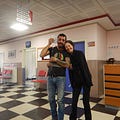


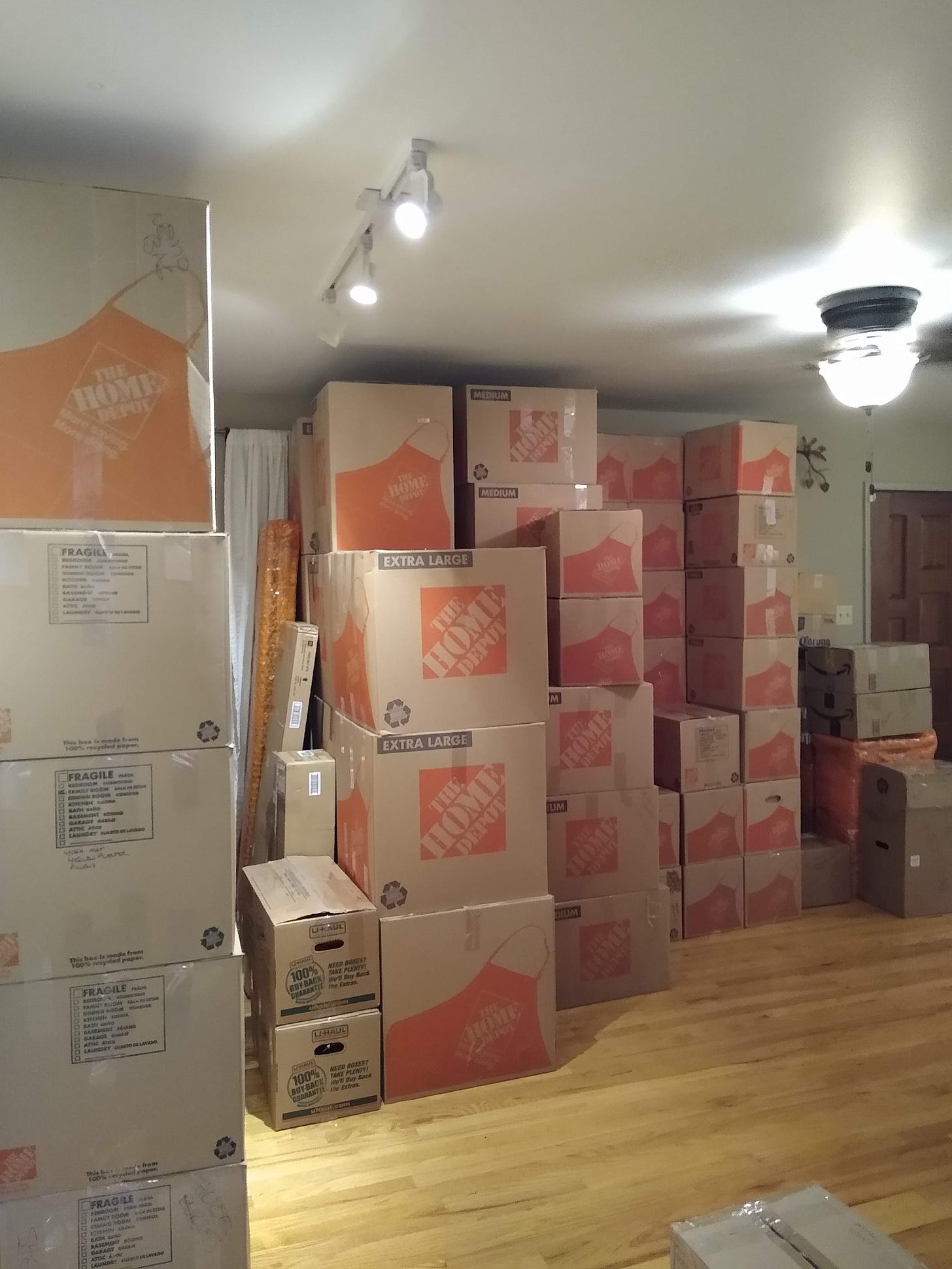
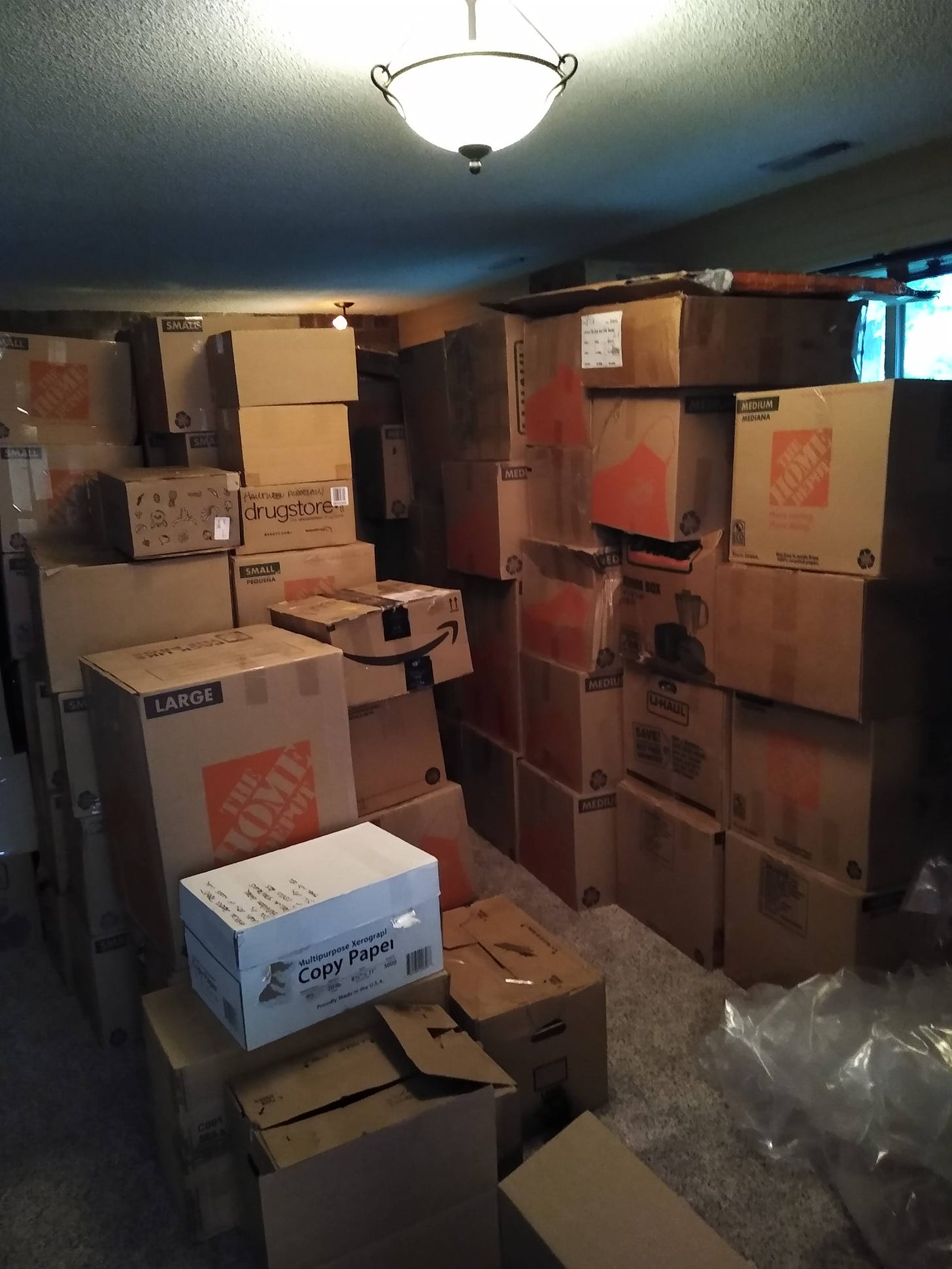
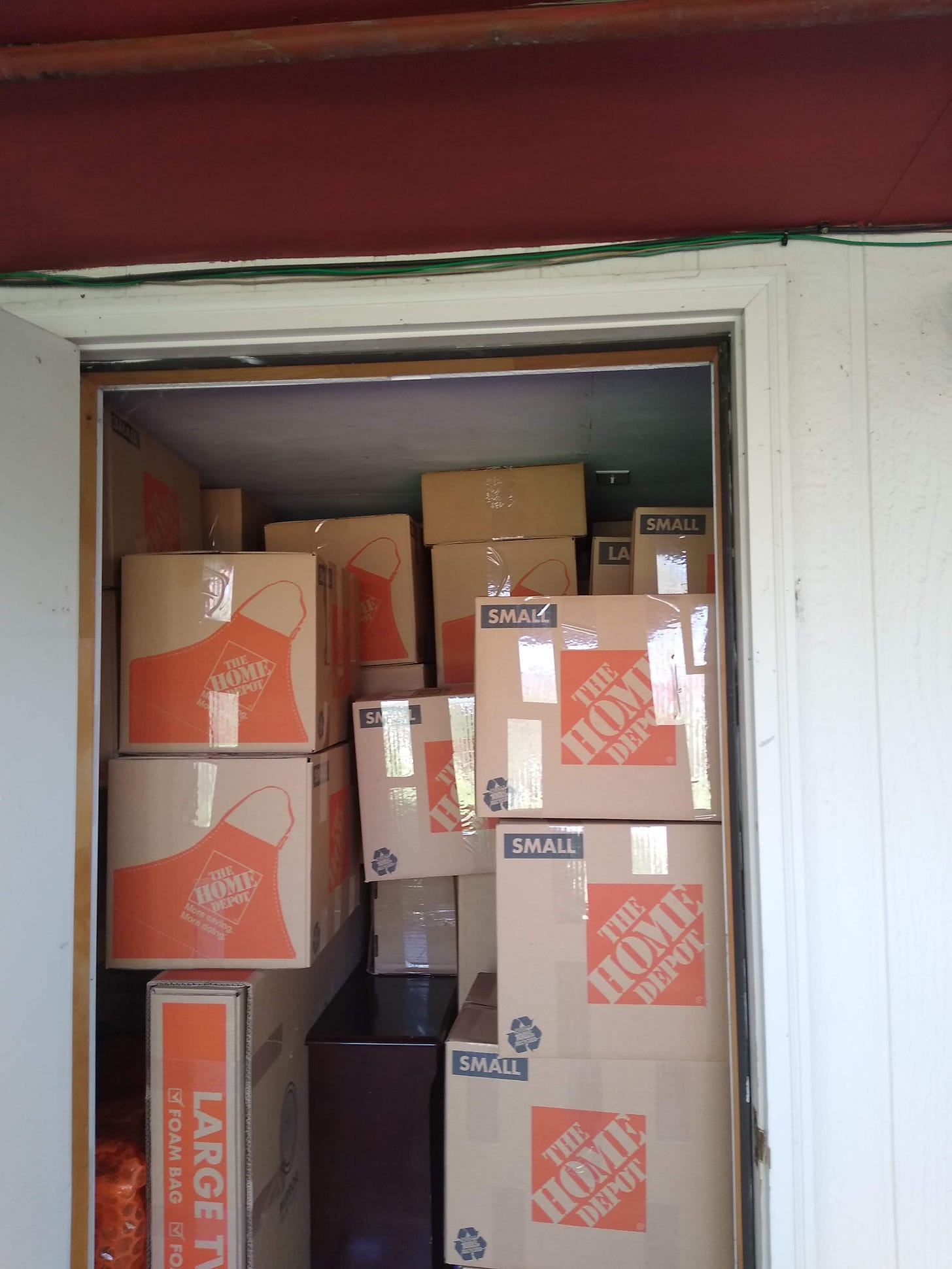
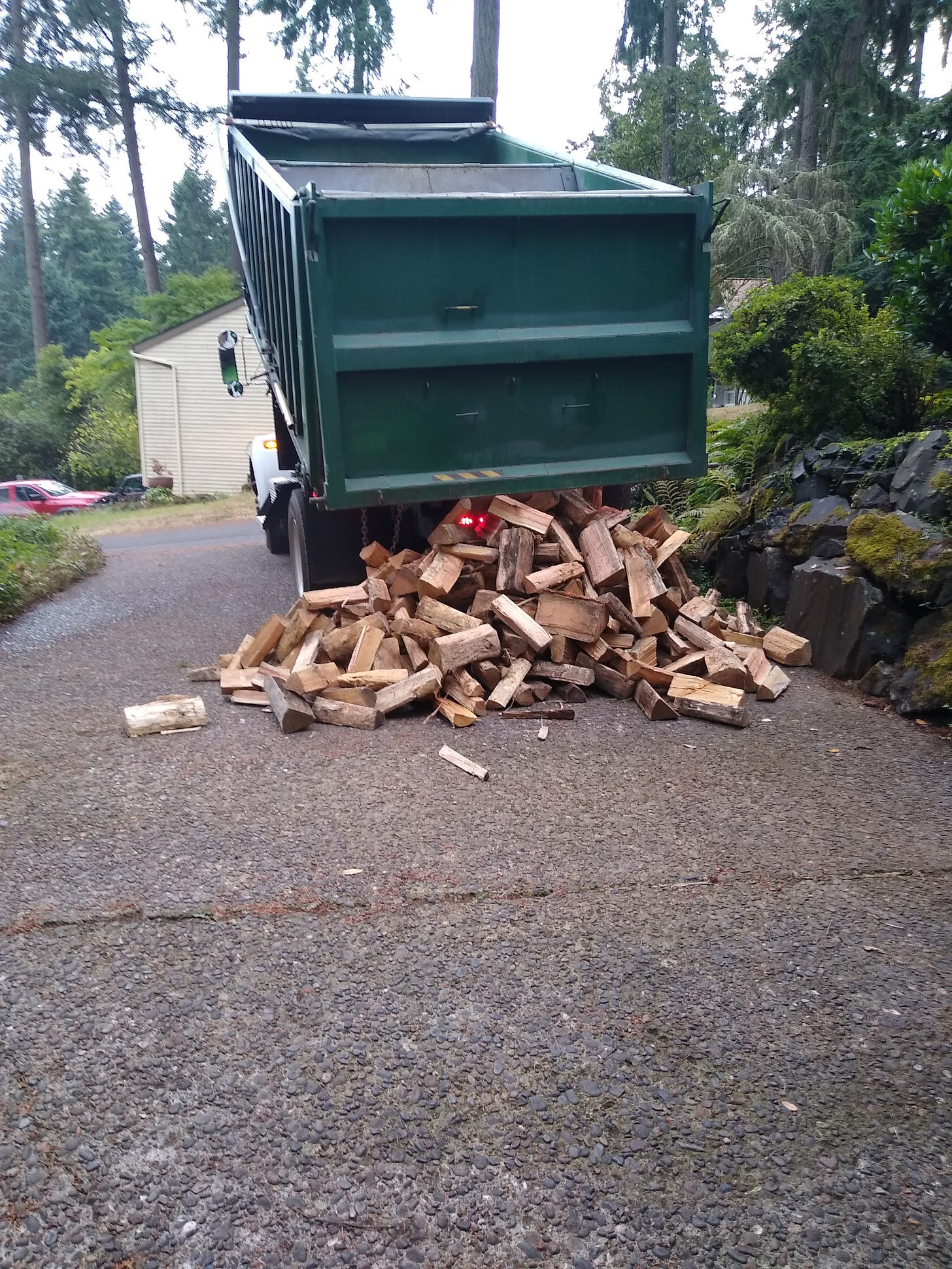
Julia, I appreciate reading your life experiences and how you overcame all of the tremendous challenges and difficulties. Thanks for the wisdom of how to walk through life and for inspiring me to face my own challenges with courage. I will save this and come back to read it every time life brings me on my knees and I need some encouragement.
I appreciate you! Your penchant for slogging through the bad to find the good is inspiring. Your writing (and experiences) inspired me to conquer the Tour du Mont Blanc this summer at 62. You have empowered me to continue training to become stronger and healthier as I age, and to recognize that not only am I worth it, I deserve to live a full adventurous life. My next dream is to summit Kilimanjaro in the year I turn 65 (2+ years from now) thank you for sharing so much of yourself!